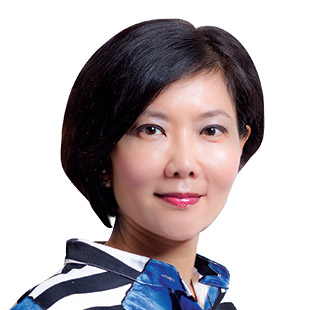
Nursing Opportunities Arising from the Challenges of COVID-19
There is no doubt 2020 was a difficult year for all of us as COVID-19 presented personal and professional challenges which have affected us in many and varied ways. However, challenges bring with them opportunities, and, in this Message, I would like to consider the opportunities for Nursing as our profession continues to evolve and contribute to transforming global health.
Last year nurses everywhere celebrated Florence Nightingale’s 200th birthday and demonstrated, on a global scale, the significance of the contribution we make to health. Fittingly, 2020 was designated the International Year of the Nurse and the Midwife and, locally, the year also marked the Silver Jubilee of our School of Nursing, In December we held our 10th Hong Kong International Nursing Forum, this time in conjunction with the 3rd Sigma Asia Region Conference. It was, by necessity, a virtual conference, and had 41 co-organisers and over 1,500 participants from around the world. The Forum provided a setting to demonstrate the extent to which nursing roles has been evolving and transforming, especially during the challenging time of the pandemic.
One theme identified in the Forum was the extent to which COVID-19 has offered opportunities for nurses to provide leadership and adapt to the changing demands placed upon them, particularly through utilising innovative health and educational technologies.
Dr Patsy Yates, Distinguished Professor and Executive Dean, Faculty of Health, Queensland University of Technology, gave the Grace Tien Lecture. In this she pointed out how nursing was held back in media representations during the COVID-19 crisis by being depicted as Angels and Heroes rather than recognition being given to the impact of what they do. However, she also noted that it was up to nursing leaders to ensure that simple, clear messages are promulgated about how nurses save lives, how they improve health and wellbeing and how they provide the foundation of accessible, affordable quality care. She emphasised the importance of strong leadership in nursing to harness the innovative contributions of nurses.
Professor Terri Weaver, Dean of the College of Nursing at the University of Illinois, provided excellent illustrations of how nurses have provided skilled compassionate care in the most challenging and often hazardous settings; of how they demonstrated their capacity to quickly develop new roles in managing disease surveillance, in deploying resources, in coordinating the movement of personal protective equipment and in speedily utilising virtual classrooms and developing training packages to ensure safe practice in risky situations. She identified the importance of nursing informatics in disseminating information, surveillance and evaluating care to inform and promote health protection. Above all, she revealed how COVID-19 has taught us that nurses can adapt to change very quickly, provide innovative solutions to problems and thrive in a disrupted environment.
Professor Patricia Flatley Brennan, Director of the National Library of Medicine, National Institute of Health in the US focused on technologies surrounding precision health. She noted how discoveries are accelerated through data driven research which could reach more people through enhanced dissemination and engagement and hasten the development of precision health care. Precision individualised healthcare brings data from and delivers information to the point of care. Here nurses can play a key role through their understanding of the person in context and draw upon their analytical skills to interpret data contextually thereby enabling truly individualised care.
These outstanding presentations, together with all the other presentations and posters we saw, demonstrated nurses’ nimbleness in the face of unprecedented demands upon them and offered a glimpse into future roles nurses will play in the delivery of precision health care and the leadership they can offer. The spread of the pandemic at such alarming speed has brought economic activity to a near standstill as countries have imposed tight restrictions on movement in attempts to halt the spread. We are experiencing the largest economic shock the world has seen in decades with global monetary poverty increasing substantially. Thus, the most critical requirement now is for health systems to be strengthened globally to cushion health and economic consequences and protect vulnerable populations.
Nurses have long played roles in promoting health and preventing disease for entire populations. They played crucial roles in managing disease surveillance and screening during the pandemic and they will be absolutely vital to health care into the future. Drawing upon their well-honed skills, their adaptability and inventiveness, nurses will need to be prepared to manage ethical issues that may arise from precision health and work towards making health care more accessible. With their willingness to embrace new technologies and new challenges, nurses will continue to serve our populations as we face on-going global threats to health and well-being.





